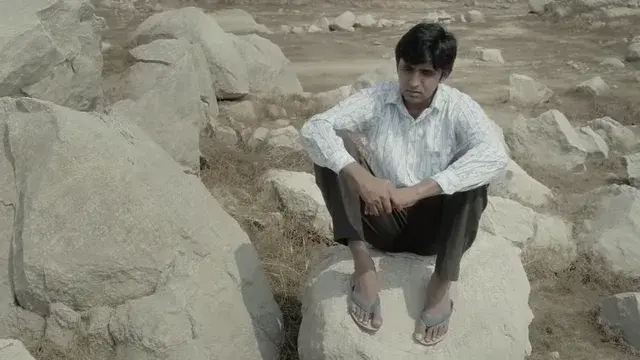Mallesham is the story of a man who refuses to give up in a world that roots for him to fail, and in
doing so, manages to revolutionise an entire industry. Based on the life of Padma Shri winner
Chintakindi Mallesham, the film closely follows the trials and tribulations he faced before all the
success and acclaim. He is exposed to the hardships of the weaving community at a young age, with gruelling
conditions and poor monetary returns causing grievances and even tragic deaths in his family. As a child, Mallesham is upset by the backbreaking nature of his mother’s work; as a young man,
he sets out to help his mother and the multitude of other women in the weaving industry by
designing a machine that will substitute their manual labour.
The opening and closing credit sequences are lovely, with the former taking us on a soothing journey of a saree being weaved by hand, and the later introducing the viewer to the TED Talk, establishing the transition to technology, and Mallesham’s hand in it. His victories are not limited to the weaving community, but involve a larger societal impact. This is especially clear when real-life Mallesham talks of a girl who told him that thanks to his machine, she was not forced to learn weaving, but instead could secure an engineering degree and a well-paying job.
Written by Sanjana Bhagwat
The film does a stellar job of establishing the gravity of its context while also balancing it with humour and relatable characters. Priyadarshi plays the part of the empathetic Mallesham wonderfully – never crossing the border between obsession and complete lunacy, but performing somewhere in the gray area between the two.
The protagonist’s journey isn’t an easy one – the process of making the machine leaves him riddled with debt, and buried in criticism, abuse and a tarnished reputation. He is faced with failure and problems even until the last five minutes of the film, leaving the audience with hardly any time to celebrate with him in his victory. However, Mallesham’s TED Talk is shown alongside the credits as they roll, and the thunderous applause from the Ted Talk’s audience members is the rewarding moment that the film’s viewers have been waiting for.The opening and closing credit sequences are lovely, with the former taking us on a soothing journey of a saree being weaved by hand, and the later introducing the viewer to the TED Talk, establishing the transition to technology, and Mallesham’s hand in it. His victories are not limited to the weaving community, but involve a larger societal impact. This is especially clear when real-life Mallesham talks of a girl who told him that thanks to his machine, she was not forced to learn weaving, but instead could secure an engineering degree and a well-paying job.
Mallesham faces one obstacle after another, and every small breakthrough or minor victory is met almost immediately with a major setback. His failures are so numerous and frequent that the plot would have seemed, had the film not been based on true events, overwhelmingly contrived. Being immersed as a viewer in the intense lows, with rarely any highs, can be exhausting.
Yet, Mallesham refuses to give up when almost anyone else in his situation would have, and you realise it’s because somewhere along the way, designing the machine becomes his raison d’etre – his reason to exist. He perseveres for the same reasons that Thomas Edison persevered and eventually succeeded in inventing the light bulb, despite thousands of failed attempts; or why esteemed neurologist Viktor Frankl felt compelled to rewrite his manuscript filled with years of research and theories even after it was confiscated. They each had a goal to achieve – and it is this purpose, perseverance, and determination to help the weaving community that drives the man and the film, Mallesham.Written by Sanjana Bhagwat

